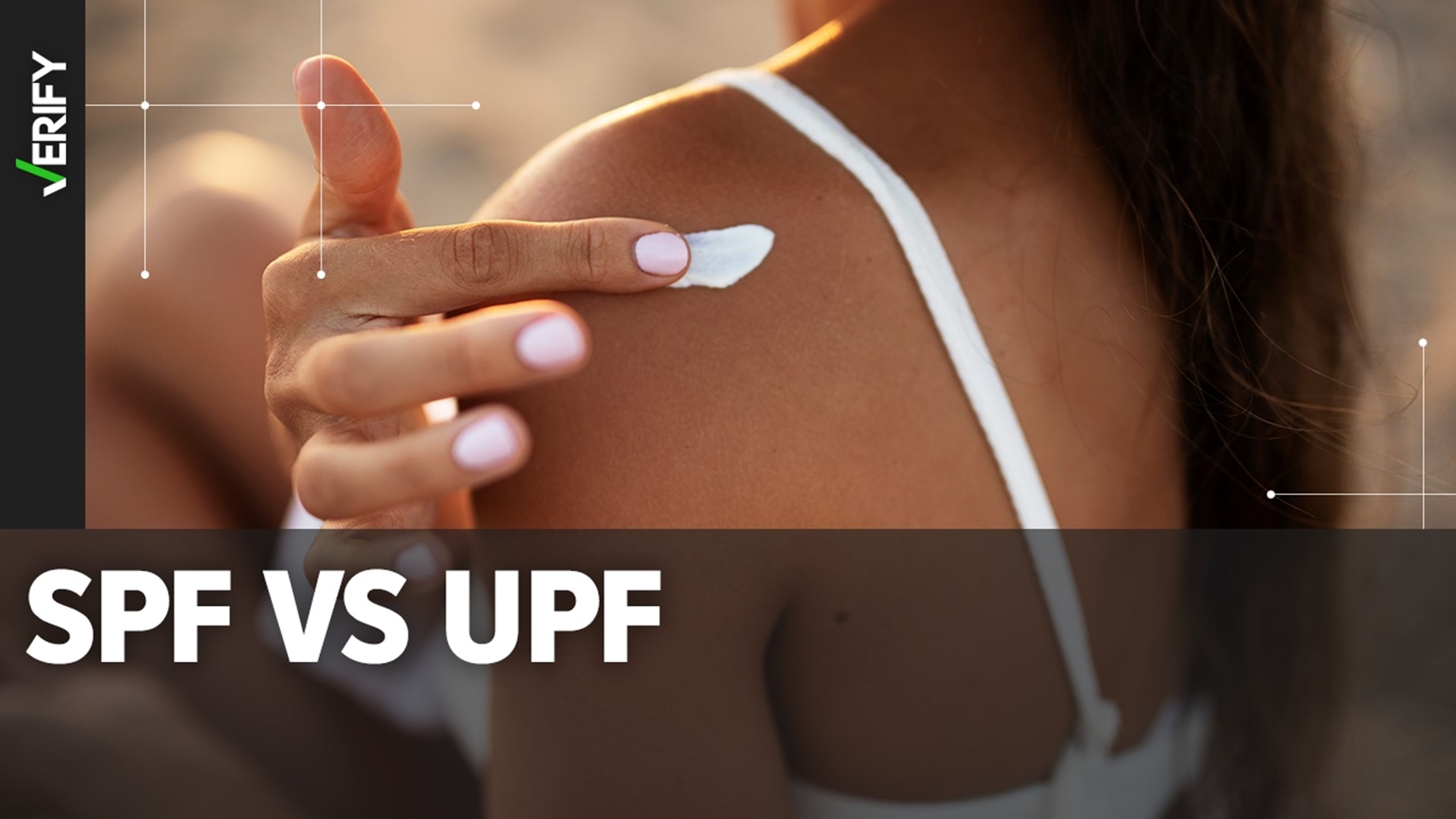MOLINE, Ill. — With the unofficial start to summer kicking off in a few days, we will be spending more time in the sunshine. Now is the time to start buying sunscreen to protect yourself from the sun’s radiation.
You should wear sunscreen because it uses agents to block, deflect or reflect the sun’s rays. When applying sunscreen, it is best to apply about one ounce of sunscreen to exposed areas of your body at least 15 minutes before going outside. Depending on the length you are exposed to the sun rays, you will have to reapply sunscreen for it to be effective.
Types of sunscreens
There are two types of sunscreens: chemical and physical.
Chemical sunscreen uses many ingredients that, when applied, absorb into the top layer of your skin. These ingredients work together to absorb UV radiation and convert them into energy before they can harm your skin. Since chemical sunscreens absorb into your skin, they need to be applied 20-to-30 minutes before heading outside and reapplied about every 2 hours you are outside.
Chemical sunscreens aren’t as thick as physical therefore they are mostly commonly used in sunscreens for your face.
Physical sunscreens, also called mineral or natural sunscreens, use two ingredients: zinc oxide and titanium dioxide. These ingredients sit on top of the skin and deflect or reflect the sun's rays. These sunscreens protect against UVA and UVB rays. Since these sunscreens are thicker, they can leave a white cast on the skin.
Choosing the sunscreen for you
The American Academy of Dermatology Association, AAD, recommends using sunscreen that is at least SPF 30 or higher.
There are no “waterproof” sunscreens — only water-resistant ones. That means how long a sunscreen will stay on wet skin. If you are picking a sunscreen that you can wear in the water or sweat through, look for either a water-resistant sunscreen, 40 minutes, or very water-resistant sunscreen, 80 minutes.
If you have sensitive skin, it is best to use physical sunscreen since there are not as many ingredients to impact your skin.
If you have darker skin, chemical sunscreens will work best since they do cause a white cast.
When it comes to “baby” sunscreen, there is no such thing. This type of sunscreen is a physical one since it only includes titanium dioxide and zinc oxide, which are less likely to irate a baby’s sensitive skin.
If there is a sunscreen that contains insect repellent, the AAD recommends not using it because sunscreen will need to be reapplied regularly while insect repellent should be applied sparingly and less often as sunscreen.
Watch more news, weather and sports on News 8's YouTube channel

